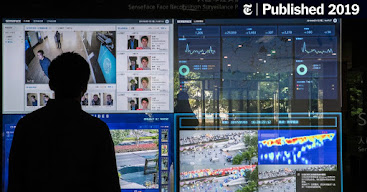Privacy Online and Offline:
March 1, 2021
by Julianna Rigoglioso
The Deciet of Connecting Online:
We are all connected as a society through the World Wide Web. We type our information, otherwise known as personal data, into our computers, iPhones, tablets, and trust it with our lives. Did you know that from your social media posts to your search history, all of it is being tracked? Once something is on the internet, it can never go away. This makes our data is everlasting, it will outlive us all. As a society, "we have lost control over data and our privacy" (Think your email's private? Think again, 1:20). They see what we buy online, what we post about, what games we play, and they even have access to our own "private" email. Even our phone calls are monitored and saved into the company's private data. With this, as technology advances, society loses the idea of privacy itself. This generation is taught at a very young age to post their social lives online and engage in social media. In a Ted Talk, scientist Andy Yen points out that "this is a generation that is not going to remember when data was private," and I find this terrifying (Think your email's private? Think again, 9:37). For me personally, I do enjoy posting on social media; nonetheless, I value my privacy much more. I do not share every minute of my life on my socials.
Computing has changed everything in the world we live in. Phones and computers are owned by almost everyone and technology companies take advantage of this. It is easy to surveil when the mass population is distracted by their new phone features: like being able to unlock your phone with the touch of a thumb or scan of someone's facial features (known as Apple's Face ID). When I received the new iPhone with a fingerprint unlocking system, I was amazed by the simplicity, convenience, and innovation. Maybe it was my vulnerability talking, or my youthful mental state, however, I never considered the thought my very own fingerprint being stored away and used as data. From facial recognition to Touch ID, technology companies store and use our personal information for data. These tech companies actually built surveillance features in the core of their network (How to avoid surveillance... with the phone in your pocket, 1:20). Our own cell phones are being monitored. When you are talking on the phone to someone, your call could be monitored by another party. This party could be the government, foreign intelligence service, hacker, or even a foreign government.
There are some ways around this, though. Some companies have built strong encryption technology that makes surveillance difficult. Apple, for example, claims that iMessage and Facetime Audio calls are very hard to monitor. I always was very suspicious of technology companies and would read about how they monitor our devices and calls. I had no idea that Apple tries to avoid that. When you send a message to another person with an iPhone (this is called iMessaging), it is difficult to track and wiretap—even Apple can't view your messages. I always thought Apple was the bad guy when it came to technology and monitoring devices because they hold so much power in the country. There are 193 Million iPhones in the US. This means almost 67% of the population own an iPhone.
After watching "How to avoid surveillance... with the phone in your pocket," I became very skeptical when talking on the phone. It's not that I have anything to conceal, but, the fact that someone could be listening to my argument on the phone with my mother; makes me feel uncomfortable. Technology companies began installing encryption software into their devices; this angered governments from all around the world. The argument that these surveillance features are designed for solving crime investigations does make sense to me. However, but at what cost? These surveillance systems, which were designed to respond to lawful surveillance requests from the police, are being hacked anyway by other nations' governments. For example, in 2009, Google and Microsoft's systems were hacked and compromised by the Chinese government. There is no way of controlling who goes through the data; good or bad people. Although encryption may make it more difficult for the police to catch these "bad guys," at least we won't live in a world where our personal information could be potentially intercepted by a terrorist, criminal, or opposing governments.
Privacy must become more accessible to society. Nonetheless, if we want our privacy, we must act together and use encrypted communication tools. The entire globe must start taking steps to be as secure as possible. I chose my privacy over everything...and you should too.



No comments:
Post a Comment